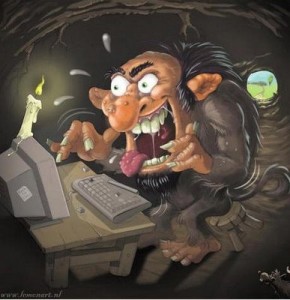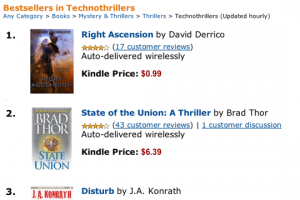Amazon is far and away the #1 e-book seller, and it’s easy to see why: they have the largest selection (over 600,000 titles, plus millions of public domain works), generally have the best prices, the #1 e-book reader (the Kindle), and software that allows you to read their e-books on multiple devices including PCs, Macs, Kindles, iPhones, iPod Touches, iPads, Blackberries, and Android cell phones (coming soon).
To buy your first e-book from Amazon, it only takes 3 simple steps:
Step 1: Create an Amazon account. (Already have one? Great, proceed to step 2!) To create your Amazon account, simply visit www.amazon.com and click the link at the very top where it says, “Hello. Sign in to get personalized recommendations. New customer? Start here.” It will ask you to enter an email address and ask if you have a password. You’ll select “No, I am a new customer.” Then, simply enter the requested information and create your Amazon account.
Step 2: Download and activate the Kindle App on the device you’d like to read on. Visit this page and download the app for the computer or smartphone you’d like to read your e-book on. Once downloaded, you will need to run the application and “register” it to your Amazon account. Just enter the email address and password for the account you created in Step 1.
Step 3: Shop and buy your e-books! Amazon sells countless e-books, most costing far less than printed books. Just use the search function near the top of the page (select “Kindle Store” from the drop-down menu) to find what you want. Or, go straight to a particular book (perhaps my new novel, The Twiller, coming out June 18?). Click on the big orange button in the upper right that says “Buy now with 1-Click.” It will ask you which device you want to deliver your purchase to. Choose the device you registered in Step 2. Then, complete the checkout process.
That’s it! Enjoy your e-book! Just email me or leave a comment if you have any questions.




